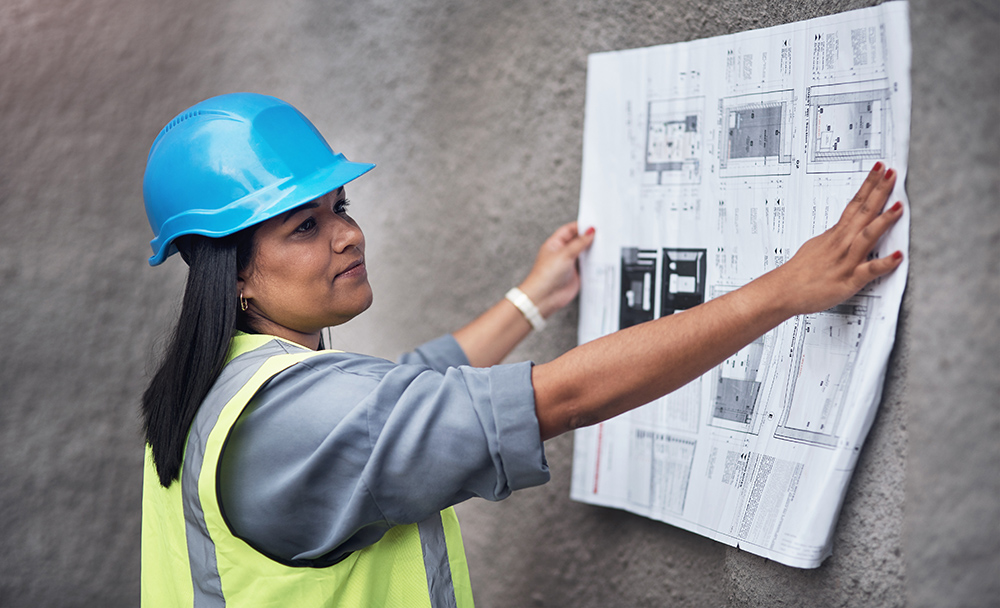How to Choose the Best General Contractor for Your Remodel
Clear Expectations Lead to a Successful Remodel
⏱️ 8 minute read

Building trust through professional collaboration is essential for successful general contractor selection
One of the biggest challenges homeowners face when hiring a General Contractor (GC) is knowing how to evaluate them properly. Many people expect instant bids and quick answers, but the truth is that quality general contractor selection takes time and careful evaluation.
The best contractors don't just execute your remodel. They help define your project scope, align expectations, and guide you through the entire process. If you approach general contractor selection with the right mindset — providing clear details and expecting a thoughtful response — you'll set yourself up for remodeling success.
Before diving into the selection process, make sure you've read our comprehensive guide on planning the perfect remodel to ensure your project foundation is solid.
📋 What You'll Learn in This Guide
1. Define Your Project Before Starting General Contractor Selection
Before reaching out to contractors, successful homeowners invest time in clearly defining their vision. This preparation is crucial for effective general contractor selection and accurate project bidding.
Pre-Contractor Selection Checklist:
- ✔ Clear Vision: Do I have a specific vision of what I want to achieve?
- ✔ Realistic Budget: Have I researched and set a realistic budget range?
- ✔ Documentation: Do I have architectural plans, sketches, or detailed project scope?
- ✔ Timeline: Do I have realistic expectations for project duration?
Many homeowners expect quick pricing during the general contractor selection process, but without a well-defined project scope, contractors can only provide rough estimates. The more detail you provide, the more accurate their bid will be.
How to Provide a General Contractor with the Right Information:
- If possible, have architectural plans drawn up before seeking bids
- Identify your must-haves vs. nice-to-haves so the GC can prioritize costs accordingly
- If you need help developing plans, scope, and budget, Master Build Advisor offers consulting services to assist homeowners before they begin contractor selection
- Most GCs are happy to work with homeowners to develop their scope and budget, but this is billable work and should be compensated

Effective communication during contractor selection ensures project expectations are clearly understood by all parties
2. Look for a Contractor Who Communicates Well — but Realistically
During general contractor selection, homeowners often believe that good contractors will provide fast, clear answers to every question. While responsiveness matters, the best GCs won't rush important decisions without proper project details.
What Strong Communication Actually Looks Like During Contractor Selection:
- ✔ They ask detailed questions. If a contractor is pushing for more specifics before bidding, it's a positive sign — they're ensuring accuracy in their proposal
- ✔ They explain their process clearly. A great GC will set clear expectations on how bids are prepared, how scheduling works, and what challenges may arise
- ✔ They provide realistic assessments. If a GC is overly optimistic about pricing or timelines without seeing detailed plans, approach with caution
- ✔ They discuss potential challenges. Experienced contractors will mention possible complications based on your project type
Red Flags to Watch For During General Contractor Selection:
3. Understanding What Goes Into a Professional Bid
During effective general contractor selection, you'll encounter two types of pricing: rough estimates and detailed bids. Understanding the difference helps you evaluate contractors more effectively.
A GC can assist in developing a rough budget with high and low price points, but when clients request detailed bids during the contractor selection process, professional GCs take these additional steps:
Professional Bidding Process During General Contractor Selection:
- ✔ Subcontractor coordination: Reach out to trusted subcontractors to obtain firm pricing for each trade
- ✔ Site evaluation: Share plans with subs and conduct job walks to ensure full project understanding
- ✔ Competitive pricing: Evaluate multiple bids for specific trades if pricing seems inconsistent
- ✔ Transparent breakdown: Provide detailed cost breakdowns so homeowners understand where money goes
- ✔ Timeline integration: Coordinate scheduling across all trades for realistic project timelines
4. Budget for the Unexpected: Planning for Contingencies
Smart homeowners understand that unexpected costs can arise once demolition and building begin. Building contingencies into your budget protects you from project delays and cost overruns. Learn more about setting realistic remodel budgets in our comprehensive budgeting guide.
Common Examples of Unexpected Costs in Remodels:
- Structural discoveries: Finding wood rot, water damage, or outdated wiring behind walls — issues that nobody could have detected beforehand
- Code compliance updates: Bringing existing systems up to current building codes when revealed during renovation
- Site conditions: Discovering poor soil conditions, utility conflicts, or access challenges during construction
- Material upgrades: Needing higher-quality materials when original specifications prove inadequate during installation
5. Choose a GC Who Practices Transparent Pricing
The biggest frustration in remodels stems from unexpected costs and poor communication about pricing. During general contractor selection, prioritize GCs who demonstrate honesty and transparency about all project costs from the start.
What Transparent Pricing Looks Like During Contractor Selection:
- ✔ Detailed bid breakdowns: Instead of vague lump sums, they provide comprehensive cost breakdowns (materials, labor, permits, fees)
- ✔ Variable explanations: They help you understand how different choices (material selections, scope changes) impact overall costs
- ✔ Change order protocols: They clearly outline how modifications will be handled and what additional costs might arise
- ✔ Fair payment schedules: They never demand large deposits before work begins or disproportionate payments early in the project
- ✔ Markup transparency: Professional contractors are open about their markup on materials and subcontractor work
Professional Insight: How Commercial Clients Handle Contractor Selection
If you've ever worked for a company that manages construction or facilities, you've seen how professionals approach general contractor selection. The process starts with a well-defined scope of work, clear expectations, agreed-upon materials, and shared understanding of inclusions and exclusions before projects begin.
Commercial clients don't just choose the lowest bidder during contractor selection. They prioritize transparency, detailed manhour rates, markup disclosures, and aligned expectations from the start. As a homeowner, you deserve this same level of professionalism and clarity during your general contractor selection process.
Final Thoughts: Successful General Contractor Selection
Effective general contractor selection isn't about finding the lowest price or fastest timeline. It's about identifying a professional partner who:
Your Ideal General Contractor Should:
- ✔ Guide project definition: Help you clearly define scope, priorities, and realistic expectations
- ✔ Communicate transparently: Provide honest assessments and detailed explanations throughout the process
- ✔ Offer realistic projections: Give accurate pricing and timeline estimates based on thorough evaluation
- ✔ Work with clear contracts: Use transparent agreements that protect both parties' interests
- ✔ Welcome collaboration: Respect your goals while providing professional guidance and expertise
The most successful remodels happen when homeowners and contractors begin with shared understanding and realistic expectations. Quality general contractor selection takes time, but choosing the right professional partner makes all the difference in your project's success.
For additional guidance on the complete remodeling process, explore our resources on avoiding common remodel mistakes and realistic project timeline planning.
Need Expert Help with General Contractor Selection?
At Master Build Advisor, we simplify the contractor selection process for homeowners:
🔹 Pre-selection consulting: We help you develop clear project scope, realistic budgets, and selection criteria
🔹 Contractor network access: Connect with pre-vetted, transparent general contractors who work with open books
🔹 Bid evaluation support: Expert analysis of contractor proposals to ensure fair, accurate pricing
